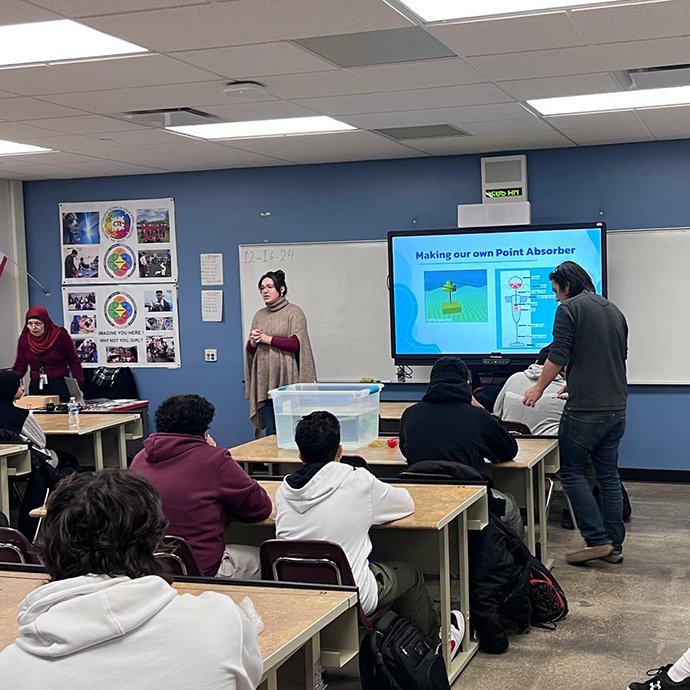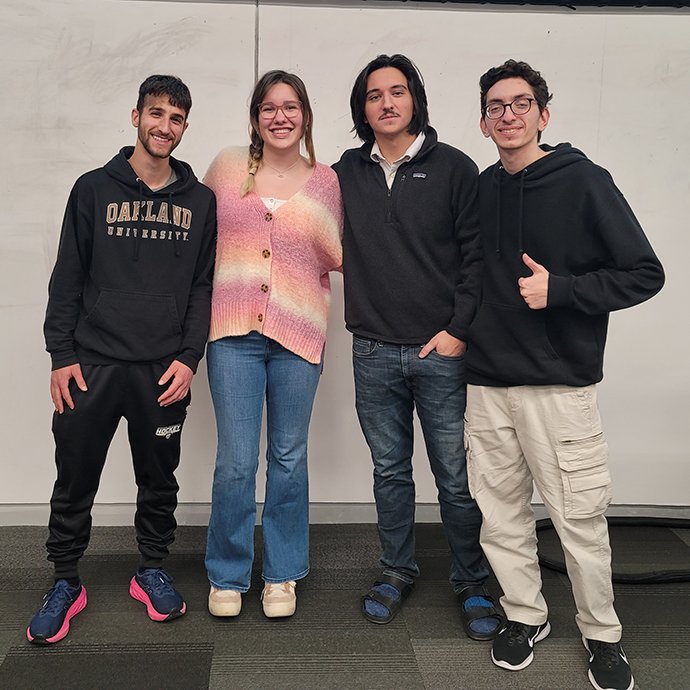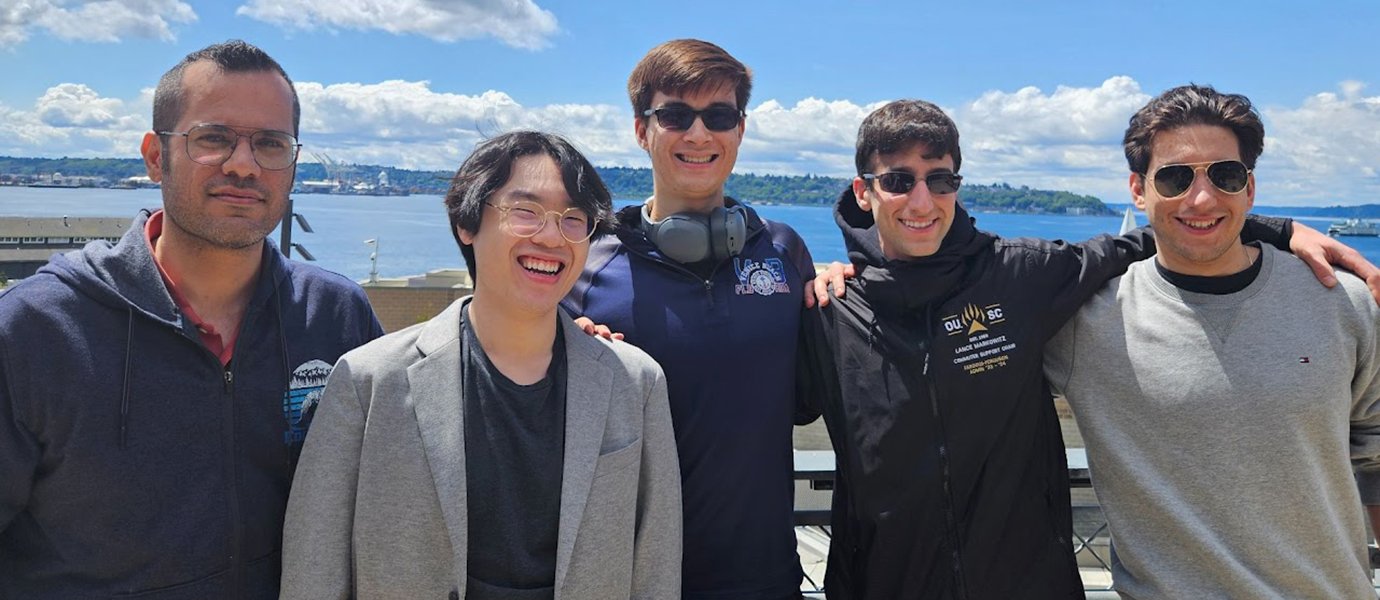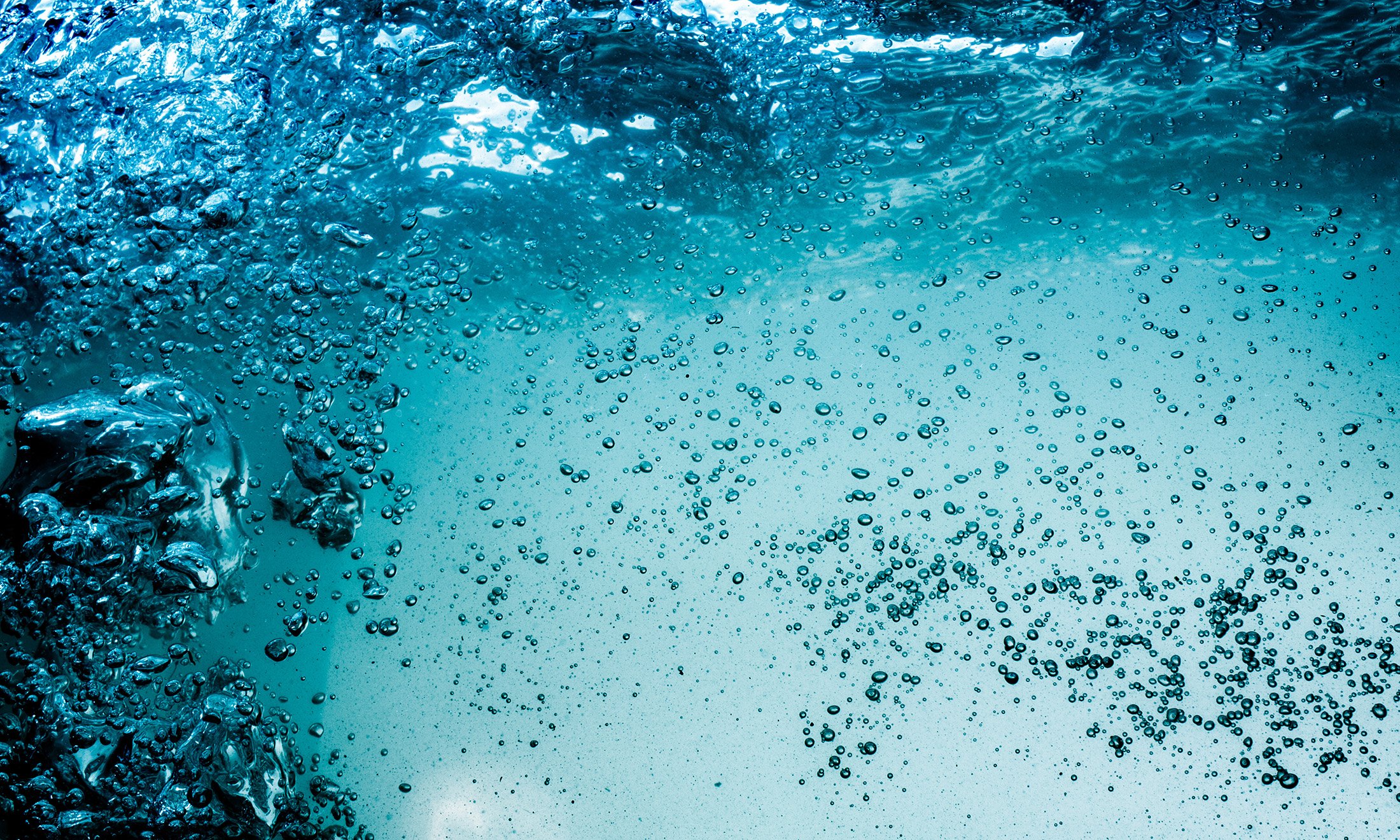Powering the Future
Making waves in the Marine Energy Collegiate Competition, some OU students weigh a career in renewable energy
When Lance Markowitz, a senior in general management and Spanish language and literature, first learned about OU’s participation in the Marine Energy Collegiate Competition (MECC), joining the team sounded like a good opportunity for experience-based learning. Now, it has rippled into a career goal in the renewable energy sector.
“I didn’t really know what [field] I wanted to go into,” says Markowitz. “I knew I wanted to go into business, but I hadn’t narrowed down what industry. And now that’s completely changed.”
| The MECC, an annual competition sponsored by the Department of Energy, invites undergraduate and graduate students from both U.S. and non-U.S. institutions to identify and develop solutions for marine energy applications that have a near-market potential. The contest spans multiple disciplines and consists of business planning, technical design, building and testing, and community connections. Placing third last year, the OU group is continuing to expand their existing project of designing a desalination filtration system for ocean water — which could help produce fresh water and energy by harnessing the power of the sea. The system utilizes the sea’s thermal gradient — the temperature difference between warmer waters at the surface and colder waters at deeper levels — to isolate clean water from salt by letting water vapor produced by the thermal gradient filter through a membrane. The group will present their concepts at a conference in Portland, OR, in May. |
Now a team coleader, Markowitz is in his second year as part of the multidisciplinary OU student group that is using their different areas of expertise to contribute to the project. In his role, he oversees the business aspects by making industry connections and providing economic analysis. He also understands the technical design to establish cost-effectiveness like possible partnerships with brine mining companies to dispose of sea salt in an economical and environmentally conscious way.
“I went from not really knowing what I was going to do to all of sudden having all these phenomenal industry connections,” Markowitz says. His involvement has led to a co-op with DTE, with his ultimate goal of going into the renewable energy sector.
The team focuses on American Samoa because of the isolated island’s unique water and energy infrastructure challenges. Aside from designing a desalination system, the students have worked with American Samoa’s local energy authorities and are working toward a collaboration with local community college students there.
A Deep Dive into Teamwork
 |
| The MECC team built a homemade point absorber – a device that moves up and down in waves; the more waves, the more energy is produced – and present it at Melvindale High School. |
Early exposure to renewable energy projects by her father, who is a professor of mechanical engineering at OU, led to team member Ava Kobus’ understanding of the field before joining the team. Last year, the bioengineering junior, who is minoring in studio art, began volunteering and became fascinated by marine energy. Kobus helps with event photography and visual presentations.
“During my time with the team, I’ve developed a passion for this work,” Kobus says. “As the community connections lead, I’ve had the honor of meeting many amazing people and learning a lot about the world and the marine energy industry.”
“I truly love this work,” she continues. “If given the opportunity to pursue this field further in the future, I would absolutely take it.”
Team member Foster Caragay, an electrical engineering senior, has always been fascinated by the production of essential resources like water, electricity and food. Joining the team last year, Caragay works on developing instrumentation, designing data acquisition systems and test benches, and enhancing modeling techniques.
 |
| Left to right: Lance Markowitz, team co-lead and business lead, dual degree in Spanish language and literature and general management; Ava Kobus, community connections lead, bioengineering major with studio art minor; Foster Caragay, build and test lead, electrical engineering major; Ryan Younes, technical design lead, electrical engineering major. |
“Working alongside peers from diverse majors has enriched our collective problem-solving and broadened our approach,” Caragay says. “It’s my hope that our efforts will inspire future students to pursue innovative projects and contribute to the ongoing development of sustainable technologies.”
Just like others in the group, Gerard Griest, a computer engineering senior, was intrigued by the concept of the project and decided to join with a friend. “We both wanted to dip our toes into the renewable energy field as the idea is fascinating,” Griest says. “After participating for a little while, I have been hooked ever since, still participating almost two years later.”
Other students in the group include Saber Khanmohammadi, Ph.D. student in mechanical engineering, and Ryan Younes, electrical engineering major.
Their faculty advisor, Jonathan Maisonneuve, Ph.D., associate professor of mechanical engineering, says the competition gives students a chance to dive deep into the topic of renewable energy and has led some former team members into a future in sustainability. One former business student went into a master’s program in Austria to focus on sustainability, while a former engineering graduate student interviewed at a water research foundation for the MECC project and was hired after graduation.
“They come in with some level of interest, but I think it grows a lot as they get more and more involved and learn about different options that are there for them,” Maisonneuve says.
 |
| 2024 team at the MECC conference in Portland, OR. Left to right: Saber Khanmohammadi, mechanical engineering Ph.D. student; Mike Zheng, mechanical engineering major; Gerard Griest, electrical and computer engineering major; Lance Markowitz, dual degree in Spanish language and literature and general management; Matt Bruar, bioengineering major. |


 April 02, 2025
April 02, 2025
 By Kristina Lindberg
By Kristina Lindberg
